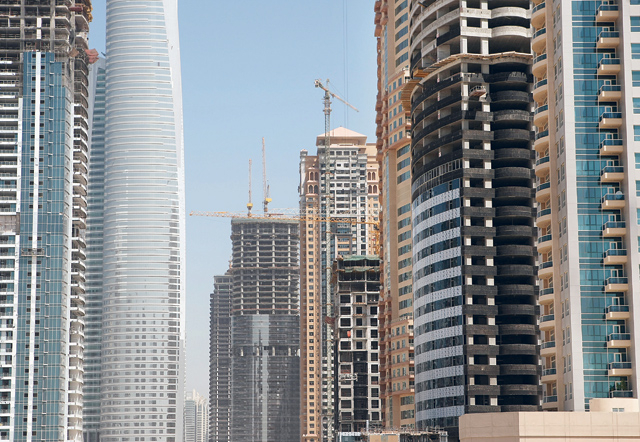Dubai: For many of the expatriates working in meagre pay, sharing rooms and crowded living spaces with other tenants may just continue to be a reality.
The lack of affordable housing continues to drive a huge number of expatriates to live in shared accommodations and even with the continued fall in rents, many household budgets remain squeezed, property consultants told Gulf News.
Overcrowding in properties is being shunned in Dubai, but many have opted to share their flats and villas in order to save money on rent. Those that continue to risk fines from municipality inspectors commonly referred to as “baladiya” are workers who don’t make seven-figure salaries, especially individuals who barely earn Dh6,000 a month.
Residential rents in Dubai have fallen by 14 per cent since the peak in 2014. However, this is not enough to accommodate the “typical resident that shares housing,” according to Jesse Downs, managing director of Phidar Advisory.
“There is a large and critical portion of the workforce that remains priced out of the market,” Downs told Gulf News. “Housing costs have decreased recently, which will invariably change the nature of shared accommodation, but it seems unlikely that it will significantly reduce the total number of shared households.”
“It likely decreases the density of households as residents disperse to new options and share with fewer people.”
Downs is reacting to unconfirmed reports that Trakhees will do random inspections to check overcrowding in middle to high-end flats, including those in the Palm Jumeirah, Jumeirah Lakes Towers, Discovery Gardens and International City.
Lukman Hajje, CCO of Propertyfinder Group, noted that while they don’t condone shared accommodations, hundreds of such properties are still being advertised online.
“One doesn’t have to search too hard to find hundreds, if not thousands of ‘partitioned rooms’ or extra bed space’ advertisements on other popular UAE websites.
“It is this segment of the market that this new initiative by Trakhees will target. These are the most vulnerable residents of the city but few people would want to live in a building that is massively overcrowded due to illegal room sharing and subletting,” Hajje told Gulf News.
In November 2016, there were estimates that, while the majority of Dubai’s 2.6 million population are willing to spend Dh100,000 a year or less on housing, only 25 per cent of the residential units available for rent are within the price range.
Hajje said that two-bedroom flats in Dubai now cost an average of Dh140,000 to rent, and as of the last count there were 1,345 Dubai properties advertised for lease on their website that are under Dh50,000 per year.
“But most of these are expensive if your income is under Dh6,000 per month and people within this segment struggle to find affordable legal accommodation virtually anywhere in Dubai.”
“Sharjah, where the medium advertised price for a two-bedroom apartment is currently Dh55,000 per year and Ajman where the medium advertised two- bedroom apartment is Dh 38,000 per year are popular choices for the lower income workers, many of whom commute daily to Dubai.”
According to recruitment specialists, residents who receive below Dh6,000 a month include those who work as waiters, customer service personnel, teaching assistants, hotel room attendants, room boys, housekeepers, janitors and cleaners, aside from construction employees.
The latest Salary Guide by Cooper and Fitch showed that those who work as sales assistants at various retail shops have monthly salaries ranging between Dh5,000 and Dh8,000. There are those who are in the supply chain industry, including materials engineers, who earn Dh5,000 to Dh9,000 monthly.
Hajje, however, pointed out that Dubai has done a lot to address the affordable housing shortage in the past few years. In fact, he noted, many of the apartment blocks that have been pumped out into the market recently are aimed at the lower to middle-income segment.
“In addition to the traditional affordable locations such as Discovery Gardens and International City, there are numerous projects in Dubai Land, Dubai Sports City, JVC (Jumeirah Village Circle), DSO (Dubai Silicon Oasis) and DIP (Dubai Investment Park) just to name a few. Thousands more are planned in Dubai South and elsewhere across the city.”












